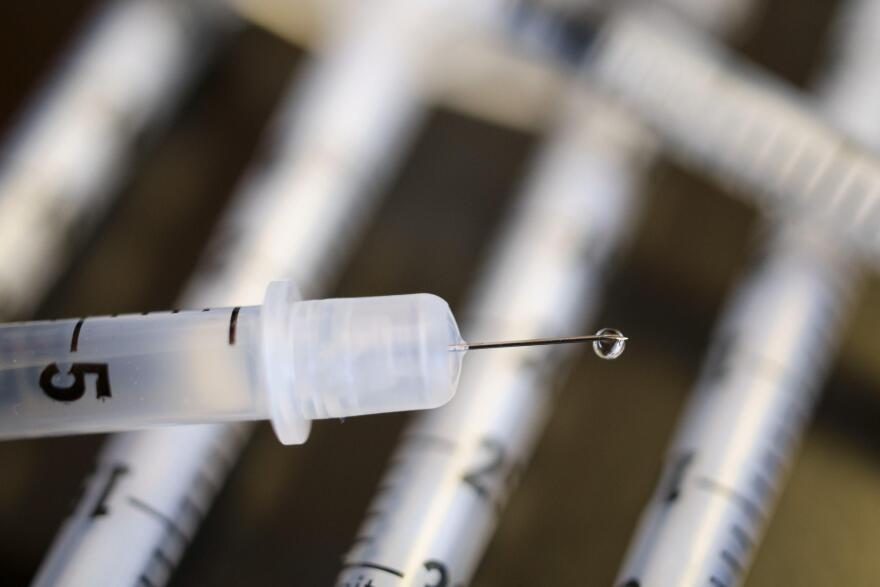Allegheny County is on track to see a record number of fatal drug overdoses involving fentanyl in 2016. According to the Medical Examiner’s office, 114 overdose victims have been found to have the highly potent opioid in their systems, just eight shy of last year’s all-time record.
The prevalence of fentanyl among overdose victims has skyrocketed over the last three years. In all of 2013, just eight fatal overdoses involved fentanyl.
Opioid use is growing in general, but part of the reason fentanyl has become so prevalent is because of its potency. It can be up to 100 times stronger than morphine, whereas heroin is about twice as strong. Experts said some heroin users will actually seek it out, despite the high rates of death associated with its use. Others warn each other when the supply of heroin appears to have fentanyl in it, like in this Reddit thread.
But fentanyl is not the only synthetic opioid making its way into Allegheny County. Fentanyl analogs of varying potencies have also been linked to overdose deaths. In 2015, 29 people died with acetyl fentanyl, which is about 15 times stronger than morphine, in their systems. Overdose deaths this year have also involved furanyl fentanyl and butyryl fentanyl, which are less potent than fentanyl, and cis-3-methylfentanyl, which is 60 times stronger.
According to a recent Wall Street Journal story detailing the fatal overdose of University of Pittsburgh student R.J. Henney in April, these and dozens of other synthetic opioids are largely manufactured in China and purchased on the dark web, and they’re making their way into communities like Pittsburgh through the United States Postal Service.
“You don’t need much for it to act, so it’s often being sold in very, very small quantities, like grams … which can very easily be shipped through the mail and other commercial shipping carriers,” said Patrick Trainor, a DEA agent based in Philadelphia.
Harvard University professor and national security expert Juliette Kayyem called it “inconceivable” that there are so few security measures on small packages coming into the United States. She said the only real screening most packages go through is a radiological test, looking for nuclear materials.
“One of the remaining loopholes or gaps in security planning, 15 years plus since 9/11, has been the capability and capacity of small packages to come into the United States without any sort of … security review,” said Kayyem, who previously served in the Department of Homeland Security under President Obama. “It should not be a surprise to any of us that the black market is taking advantage of that gap.”
The STOP Act, of which versions are currently in subcommittee in both houses of Congress, would require U.S. Customs and Border Security to keep an electronic record of every small package that comes into the country.
“What we’re asking for is really to put the same data that is taken essentially by hand – whether it’s your name, the address, the weight of the package, what’s being sent – and to use electronic data,” said Kayyem.
Kayyem said law enforcement could then create a “no mail list,” similar to a “no fly list.” If packages containing dangerous drugs originated from a particular address in the past, they wouldn’t be allowed into the country in the future.
“Closing the gap won’t end the scourge of what’s happening, but from a security perspective, you just want to make it harder,” she said.




